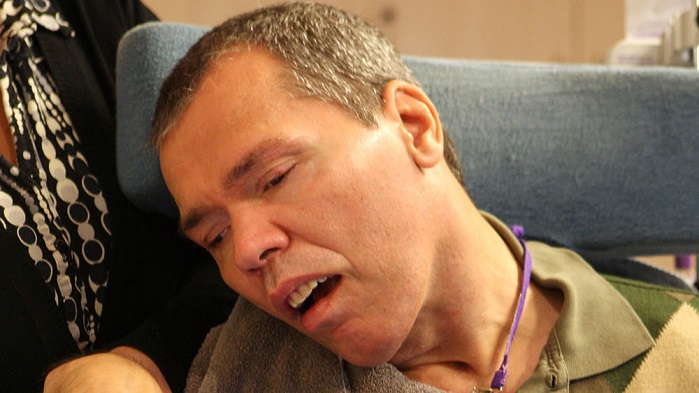London, England (LifeNews.com) — After he was the victim of an automobile accident, doctors said 23-year-old Rom Houben was in a comatose state and unable to communicate with those around him. Now, 23 years later, the 46-year-old says he felt trapped as he was conscious the entire time and attempted to communicate.
Houben became paralyzed after the crash but, thanks to advances in medical technology, he is now able to tell the world his thoughts via computer.
“I screamed, but there was nothing to hear,” he told the London Daily Mail newspaper.
“I dreamed myself away,” he said of how he coped with the situation. “All that time I just literally dreamed of a better life. Frustration is too small a word to describe what I felt.”
Although tests at the time showed that he was essentially “extinct,” newer tests conducted just three years ago showed Houben’s brain was functioning normally — and his renewed ability to communicate is something he describes as a “second birth.”
“I shall never forget the day when they discovered what was truly wrong with me – it was my second birth,” he told the paper. “I want to read, talk with my friends via the computer and enjoy my life now that people know I am not dead.”
British neurological expert Dr. Steven Laureys has described Houben’s case in a new paper and said, “Medical advances caught up with him.”
Click here to sign up for pro-life news alerts from LifeNews.com
The paper indicates doctors used the internationally accepted Glasgow Coma Scale to assess his eye, verbal and motor responses, but the results were incorrect.
Laureys says physicians need to not be so quick to label patients as in a vegetative state, because such a diagnosis can be incorrect.
“‘Anyone who bears the stamp of “unconscious” just one time hardly ever gets rid of it again,” he said.
American bioethicist Wesley J. Smith commented today on the case and said it has significant implications for the euthanasia and assisted suicide debate.
“We hear constantly that people diagnosed as being persistently unconscious should be dehydrated to death because they are not ‘persons,’ or are actually ‘dead’ — and so should be available for organ harvesting,” he said.
“We hear that even if the family resists, futile care theory should permit bioethics committees to impose unilateral withdrawal. And we hear this even as repeated studies demonstrate that 40 or more percent of patients diagnosed as PVS really aren’t,” he continued.
Smith says “there are abundant reasons to treat people with profound cognitive disabilities as fully human beings.”
“First and foremost, because they are us. Second, because we don’t know enough about how the brain works to know that there won’t be some regeneration to permit eventual restoration of some function. But also, because there is always hope,” he said.
“Houben is here today only because he wasn’t dehydrated to death,” Smith concludes.
“There is no doubt he went through a horrendous experience, but thanks to treating him as a fully equal human being by caring for him all those years and giving him tests late into his disability–explicitly refused to Terri Schiavo–he is here today to tell tale and live the rest of his life,” he said.
“And for goodness sake, whatever you believe about these issues, don’t talk in the presence of PVS or other apparently unconscious patients as if they aren’t there. Rather, always treat such people as if they can hear you, because sometimes they can,” Smith said.








